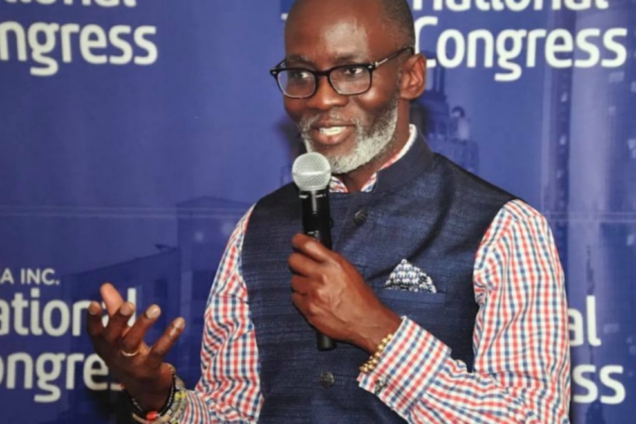NPP stalwart, Gabby Otchere-Darko, has underscored the relevance of government's debt exchange programme in facilitating negotiations with the International Monetary Fund (IMF).
Ghana is currently in talks with the global lender for a deal to help salvage the country's ailing economy.
If approved, the deal will help Ghana to properly balance its books and project better prospects for the economy.
But according to Mr Otchere-Darko, this can be possible if government's domestic debt exchange programme is embraced by all and sundry.
In a tweet on Sunday, he therefore called on all individual bondholders to align with government towards a successful implementation of the said initiative.
"The debt exchange programme is voluntary for individual bondholders but a very necessary evil for our economy.
Its success is critical to restoring macroeconomic stability, securing an IMF prog. It hits those of us holding bonds very hard. A straight no to it is no solution!", he wrote.
Ghana's return to the IMF marks the country's seventeenth engagement with the Fund, since attaining independence in 1957.
The factors which have perenially led to Ghana-IMF interactions include the deprecation of the local currency, fiscal indiscipline, budget deficits and a host of other lapses in economic management.
In its current ongoing negotiation with the Fund, the depreciation of the local currency against other major trading currencies has been identified as one of the key triggers.
Also, the country's debt stock and rising inflation have collectively contributed to its recent IMF engagement, which started in July 1, 2022.
But government has consistently maintained that these factors would not have resurfaced had it not been for the Russia-Ukraine war and the ravages of the COVID-19 pandemic.
Over the period, government communicators and state officials have been explaining how the pandemic and the conflict jointly culminated in the downward spiral of the economy, which they claim was on a good footing prior to these twin disasters.
Meanwhile, according to critics, the country's 17th return to the IMF is due to government's own mismanagement, reckless borrowing and corruption.
It is however expected that, the engagements with the IMF will be concluded before the first half of the year, to aid government's plans of rebuilding the economy.
Latest Stories
-
Ghana Hajj Board confirms death of seven pilgrims in 2025 pilgrimage
3 hours -
Both governments are responsible for contributing to the country’s energy insecurity through financial debt
3 hours -
Israel is accused of the gravest war crimes – how governments respond could haunt them for years to come
4 hours -
Liberia’s ex-speaker charged with arson over parliament fire
5 hours -
Help protect oceans for sustainable future – Dr. Agyekumhene
6 hours -
Portugal vs Spain Nations League final preview
6 hours -
Trump-Musk row fuels ‘biggest crisis ever’ at Nasa
7 hours -
Sir Sam Jonah’s blueprint: 10 keys to transform Ghanaian youth into nation builders
7 hours -
Sir Sam Jonah calls for urgent STEM prioritisation to develop Ghana
7 hours -
Gyakie makes Forbes Africa’s 30 Under 30 list for 2025
8 hours -
7 Ghanaian pilgrims confirmed dead during 2025 Hajj
8 hours -
‘Write for World’ graduates 30 females in entrepreneurship and fashion design programme
10 hours -
Police escort vehicle somersaults in near-fatal crash near Binduri
10 hours -
Sir Sam Jonah commends Mahama as he backs youth leadership to transform Ghana
11 hours -
OSP vs Ofori-Atta: It is difficult to reconcile the letters from Mayo Clinic – Neurosurgeon
11 hours

